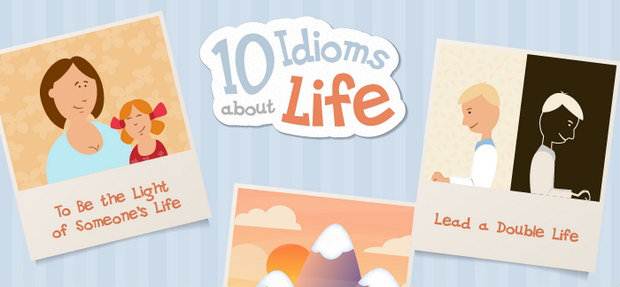Idioms are an important part of language because they express wisdom in simple words. They carry meanings that go beyond their literal sense and often reflect human behavior and life lessons. One such idiom is known in different forms such as “the cobbler’s children have no shoes” or “the farmer’s children have no milk.” These versions are combined in the keyword “cobbler kid no shoe farmer kid no milk idiom.”
At first, the phrase may sound strange, but it actually points to a very common situation in life. It shows irony, which means that the reality is opposite to what you would expect. A cobbler spends his life making shoes for other people, but his own children may walk barefoot. A farmer spends his days producing milk for others, but his own children may lack it. This idiom is a reminder that even experts sometimes fail to give their own families the benefits of their work.
Meaning of Cobbler Kid No Shoe Farmer Kid No Milk
The idiom carries a simple but powerful meaning. It suggests that people who are skilled in a profession often neglect to use that skill at home. A cobbler is a skilled shoemaker, but his children might not wear proper shoes. A farmer provides milk for the market, but his own children may not drink it daily. This shows a paradox, which is when reality contradicts expectation.
In real life, this can happen because people spend so much time and effort serving others that they forget to care for themselves and their families. It can also highlight the idea that sometimes people value others’ needs more than their own. The idiom therefore teaches us about the importance of balance. It warns us that if we ignore our close ones while focusing only on work, we may fail in our personal responsibilities.
Historical Origin and Background

The phrase “the cobbler’s children have no shoes” is believed to be very old, and it appears in several European cultures. In some places, it was used to describe how professionals often ignore their own households. For example, a blacksmith might fix tools for the whole village but not repair his own door. Over time, this idea spread in many forms and became an idiom used in different languages.
The farmer version, “the farmer’s children have no milk,” is less common but carries the same thought. Farmers are associated with abundance, yet sometimes poverty or neglect means their families cannot enjoy the same resources. Both versions show that this situation has been observed for centuries. It reflects a truth about human priorities, where the focus on work and business may overshadow personal needs.
Why This Idiom Exists in Different Versions
This idiom exists in multiple forms because cultures adapt sayings to their own lives. In cities, cobblers and shoemakers were common, so the phrase about the cobbler became popular. In rural areas, farming was central, so people used the farmer version. Both point to the same message but fit different cultural backgrounds.
The idiom’s flexibility makes it relatable to many people. Today, you might hear modern variations such as “the web designer’s website is outdated” or “the doctor never has time for his own health.” These are modern updates of the same old idea. The change in words shows how idioms live on across generations, always reshaped to match new lifestyles.
Real Life Examples of the Idiom

This idiom is not just a piece of history; it is seen in everyday life even now. A teacher may spend all day educating children at school but may not have the energy to help her own child with homework. A mechanic may repair cars for everyone else but drive a vehicle that is old and broken. A tailor may design beautiful clothes for clients but wear simple or worn-out outfits himself.
These examples show that the idiom applies to all fields of work. It does not mean that professionals do not care about their families. Instead, it reflects how time, energy, and resources are often directed outward rather than inward. It also shows that sometimes people underestimate the importance of applying their own skills at home, assuming there will be time later.
Lessons We Can Learn from the Idiom
The main lesson of this idiom is balance. It tells us that while serving others is important, we should not neglect our own responsibilities. If we only focus on business, our family or personal life may suffer. The cobbler’s children deserve shoes, and the farmer’s children deserve milk just as much as outsiders do.
This idiom also teaches humility. It reminds us that no one is perfect, not even experts in their own fields. Everyone has blind spots, and it is easy to overlook our closest needs. By understanding this, we can become more thoughtful in our choices. The idiom therefore encourages us to reflect on our priorities and make sure we are not ignoring those who depend on us most.
Use of the Idiom in Modern Life

In modern times, the idiom is still relevant. Today we often see professionals struggling with the same issue. A web developer may create advanced websites for clients but leave his personal site half-finished. A doctor may work long hours treating patients but neglect his own health checkups. A chef may cook delicious meals in a restaurant but eat fast food at home because he is too tired to cook again.
These modern cases show that the idiom continues to describe real life. It highlights that even in today’s fast-paced world, the balance between work and home is difficult. The idiom becomes a gentle reminder that we must take care of ourselves and our families too, not only our careers and clients.
Similar Sayings and Related Idioms
There are many idioms that share a similar meaning. One is “physician, heal thyself,” which means doctors should take care of their own health before treating others. Another is “practice what you preach,” which encourages people to follow their own advice. These sayings remind us of the same truth: it is easy to give to others but harder to apply wisdom to our own lives.
In different cultures, similar proverbs exist. For example, in Spanish there is a saying “en casa del herrero, cuchillo de palo” which means “in the house of the blacksmith, a wooden knife.” This again highlights the same irony. These examples prove that the idea behind the cobbler and farmer idioms is universal and timeless.
Common Misunderstandings about the Idiom

Some people may misunderstand the idiom and think it criticizes professionals for being careless. However, the idiom is not meant as an insult. Instead, it is an observation about human life. It shows how difficult it is to balance external work with personal care. It can also reflect economic struggles, where even though someone produces goods, they may not be able to afford them for themselves.
Another misunderstanding is to think that this idiom applies only to cobblers or farmers. In reality, it is just an example that represents all professions. The message is not limited to shoemakers or milk producers; it applies equally to teachers, doctors, mechanics, designers, and many others.
Conclusion
The idiom “cobbler kid no shoe farmer kid no milk” carries a timeless message about human priorities. It highlights the irony of how people often provide for others while forgetting their own families. From its historical roots to modern examples, the idiom continues to teach us about balance, humility, and responsibility.
It reminds us that skills and resources should not only benefit the outside world but also those closest to us. Whether in the past with cobblers and farmers or today with doctors, teachers, and designers, the lesson remains the same. The idiom is a gentle push for us to care for our loved ones and ourselves while we serve society.
FAQs about Cobbler Kid No Shoe Farmer Kid No Milk Idiom
What does the idiom cobbler kid no shoe farmer kid no milk mean
It means that people who are experts in a skill often fail to give the same benefits to their own families. A cobbler makes shoes for others, but his own children may not have shoes. A farmer produces milk, but his own children may not drink it.
Where did the idiom cobbler kid no shoe farmer kid no milk come from
The idiom comes from old proverbs found in European and rural cultures. The cobbler version is popular in cities, while the farmer version is common in farming communities. Both highlight the same irony that workers may not enjoy the products they create.
Is this idiom still used in modern times
Yes, it is still used today in modern ways. For example, people may say a web designer’s own website looks unfinished or a doctor neglects his own health. The idea remains relevant because professionals often focus more on clients than on themselves.
What lesson can we learn from this idiom
The main lesson is that balance is important. Serving others is good, but we must also take care of ourselves and our families. It teaches us responsibility and humility by showing that even skilled people sometimes overlook personal needs.
Are there similar idioms in other cultures
Yes, there are many. For example, in Spanish they say “in the house of the blacksmith, a wooden knife.” In English, there is also “physician, heal thyself.” All of these sayings carry the same meaning about neglecting personal use of one’s own skills.
Is the idiom meant as criticism
Not really. It is more of an observation than an insult. It does not say cobblers, farmers, or other workers are careless. Instead, it shows how natural it is for people to spend their energy on others while unintentionally neglecting themselves.
Related Post:



